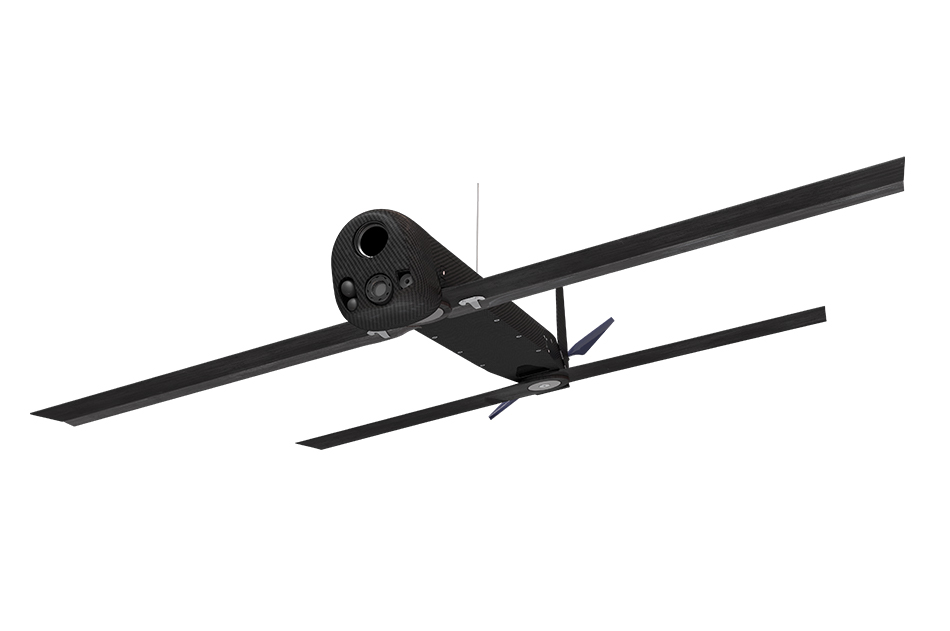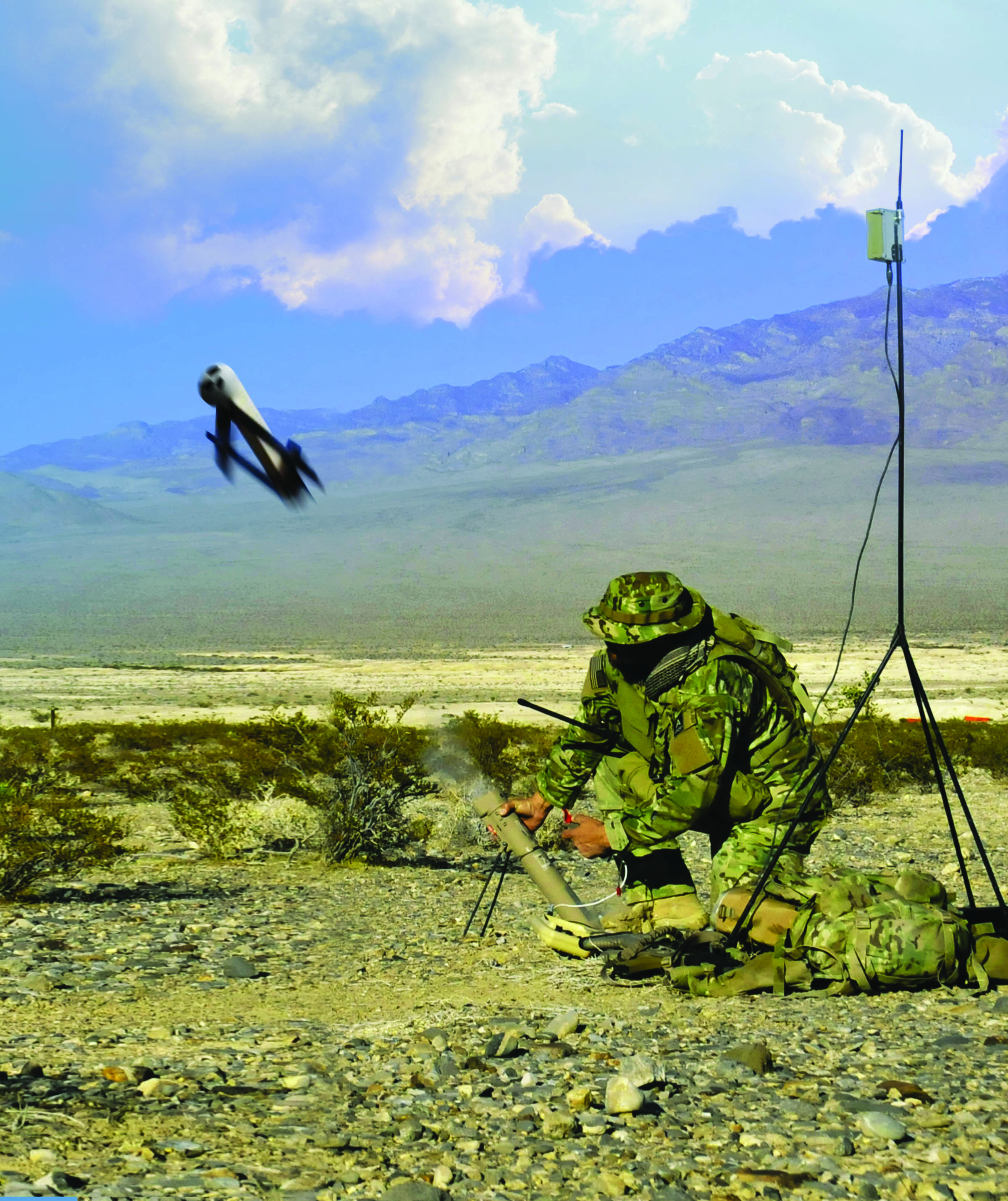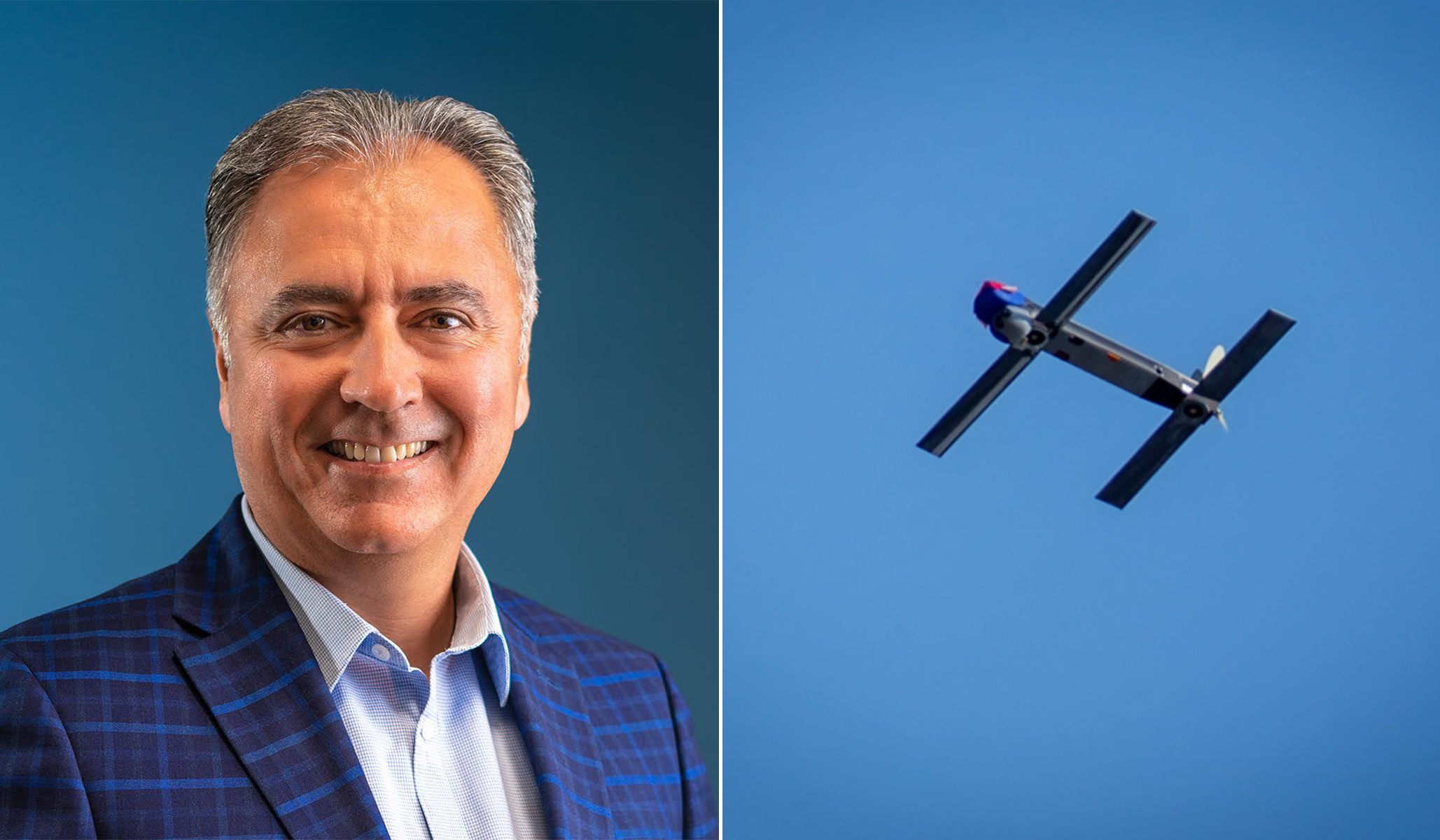When he was a young teenager, Wahid Nawabi would go to the roof of his family's home in Kabul and watch the Soviet helicopters flying in the distance.
For most of his childhood, Afghanistan had been peaceful and increasingly prosperous. But that all changed after the nation's democratic government was overthrown by Marxist military officers in 1978 in the Saur Revolution. In December 1979, the Soviet troops invaded, plunging the country into what has become 40 years of war, violence, and instability.
In 1982, Nawabi and his family fled. Nawabi, then only 14, led his three younger sisters on a harrowing 48-day journey to escape the war-torn country to reunite with their parents in India.
Because of that experience, Nawabi said he feels a personal connection with the more than 5 million refugees who have fled Ukraine in the wake of this latest Russian invasion. Now as an American and as the chief executive of AeroVironment, a leading provider of military-grade fighter drones, Nawabi said he has a moral obligation to aid the Ukrainian defense effort.
"We need to help the Ukrainians get their freedom back," Nawabi told National Review. "I've gone through that experience. It's heart-wrenching for me."
Last month, the U.S. government sent 100 of AeroVironment's Switchblade drones to the Ukrainians, part of a massive weapons package. Switchblades have been described as "kamikaze drones," because after they lock on to their target, they fly in and explode. The Switchblade 600, which can fly for more than 40 minutes with a 25-mile range, is designed to take down tanks and other armored vehicles. The smaller Switchblade 300, which weighs less than six pounds and can be carried in a backpack, is meant for smaller targets.

Last week, AeroVironment announced that it was donating more than 100 of its Quantix reconnaissance drones to the Ukrainian defense. The company is pursuing additional sales to the U.S. military, and also is in direct talks with the Ukrainian government in Kyiv.
Nawabi declined to say just how many of his company's drones have been delivered to the Ukrainians. "I've got lots of stories, but I can't tell you," he said. But he said the drones are capable of being game-changers, comparing their potential impact in Ukraine to the Stinger anti-aircraft missiles the CIA provided to Afghan rebels to help them turn the tide on the Soviets.
The Switchblades in particular have "almost an ideal set of capabilities" for the war in Ukraine, Nawabi said. "The Taliban say, 'You can run, but you're going to die exhausted,'" he said.
Nawabi was born in Mazar-i-Sharif in northern Afghanistan, and moved to Kabul when he was four. The Afghanistan of his childhood was peaceful and religiously moderate. The schools were good; he took calculus, chemistry, physics, and biology courses by ninth grade, he said.
"My mother dressed just like a typical American would dress here in America. You would find the latest fashion," Nawabi said of Afghanistan before the Soviets. "Some people were religious, many were not. They wore skirts and lipstick. I had my first beer when I was in Kabul, a Budweiser. I'll never forget it. My dad asked me to try it."
"It was actually a big hippies town back in the 70s," Nawabi said of Kabul. "A lot of hippies used to go to Afghanistan to smoke hashish and hang out in the mountains."
But after the internal revolution and the Soviet invasion, Afghanistan became too dangerous for Nawabi's American-educated parents. On a cold winter night in 1982, Nawabi's father sat with him in their living room with the news: They needed to leave. More troubling, for their safety, he and his three sisters couldn't travel with their parents, who were flying to India. The plan was to reunite in New Delhi. "I felt like the world was turned upside down," Nawabi said.
The day after his parents left, the smuggler who was supposed to help Nawabi and his sisters escape fled the country after he was pursued by Soviet soldiers. "I was left with my grandparents, who were old, and they decided to just send me on my own with my three sisters," Nawabi said.
For 48 days, he said, he traveled with his sisters on a journey from Kabul to Kandahar, to Islamabad in Pakistan to India, by bus, train, pickup, mule, and foot. "I had no instructions. All I had was some cash and some physical maps; no passport, no valid visas," he said.

He and his sisters had a cover story to explain their travels: They were villagers who had been visiting relatives in Kabul, and they were headed back to their parents in the countryside. On the first night of the journey, on the drive to Kandahar, their bus driver pulled off the road to avoid the Soviets. He directed everyone to walk in waist-deep snow to a nearby village.
The next night, Nawabi said, they were in a coffee shop when someone announced that Soviet soldiers were coming to search. The shopkeeper told everyone to leave.
"I said, 'I have nowhere to go.' So he said, 'Okay, move out of the way.' He pulled the rug out. He removed the dirt. He took the plywood out. He said, 'Get inside this hole,'" Nawabi said, describing the hole as like a grave. "They put me in there with my three sisters and another 15 people. He put the plywood, put the dirt on top, put the rug on top, and he said, 'Don't say a word until I come back and open it up.' And we stayed there until like 5 a.m. the next morning."
"My God, man, I went through everything you can imagine," Nawabi said of the trip.
Nawabi said his dad knew when he and his sisters arrived in Pakistan, and then in Amritsar, a city across the border in India. In New Delhi, Nawabi said, "my dad would come every day and search every bus that came from that border city."
On the bus ride into the chaos of New Delhi, Nawabi awoke to someone calling his name.
"I think I'm dreaming. I realize it's actually my cousin's voice, and he's with my dad, and they're searching," said Nawabi, who didn't wait for the bus to stop. "I just jumped out the window."
Nawabi blames the Russians for what's happened to Afghanistan over the last 40 years. If it hadn't been for the Soviet invasion, he suspects the country would have turned into something more moderate and open-minded, like neighboring Tajikistan.
"A lot of folks today blame America, which yeah, we take some blame for causing some of the problems and leaving abruptly," he said, "but all of this started with the Russians. Had they not invaded Afghanistan during the Soviet invasion, none of the rest of the history would have played the way it played."
He hopes that AeroVironment's drones will help spare the Ukrainians a similar fate.
"For me, when I see these millions of refugees, it's just like me walking in the same exact situation," he said. "I feel that moral and ethical responsibility as an American, then as the CEO of this company, and third as a human being, seeing what I see, and I believe in the cause. I believe this aggression has to be responded to."
|






No comments:
Post a Comment